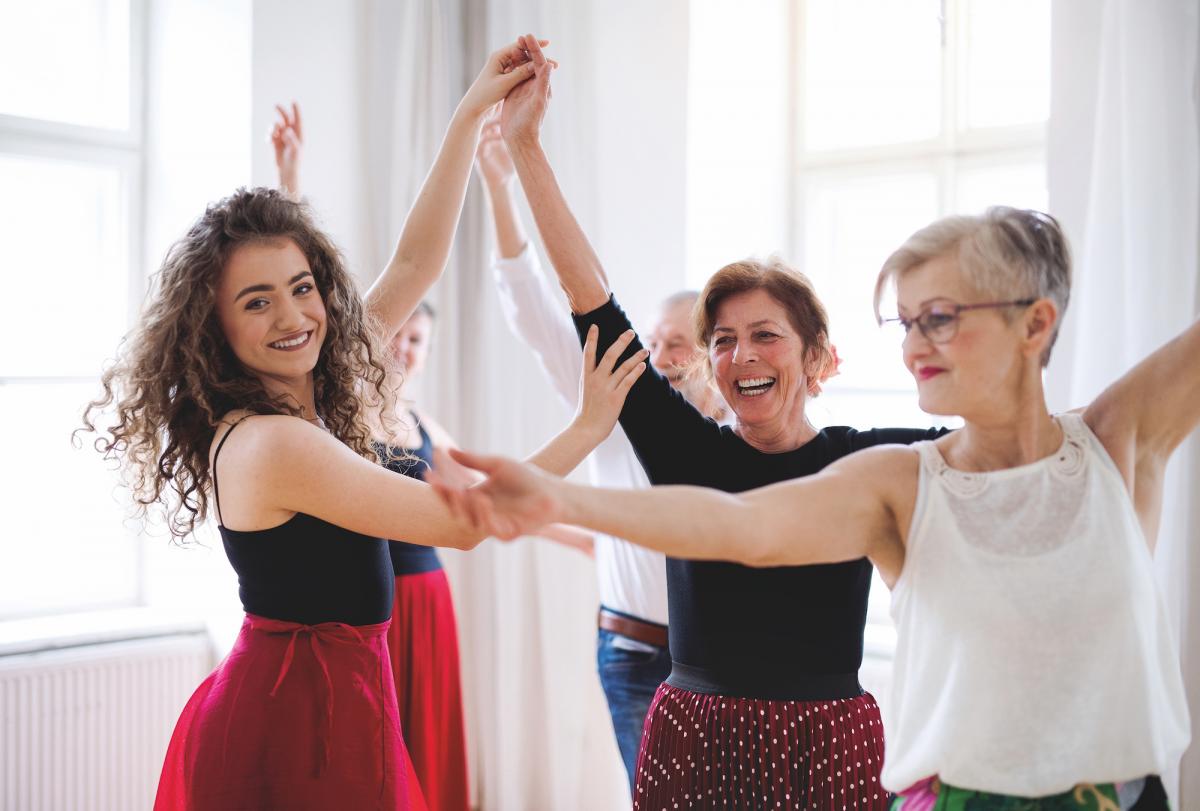This wonderful Cornish workshop and museum is dedicated to the legacy of studio pottery trailblazer Bernard Leach
Opinion: Art As Combatant
Opinion: Art As Combatant
24 Sep 2020
Getting creative could be the best thing for your health, says Dr Daisy Fancourt, whose work centres on the benefits of social and creative participation on our wellbeing.
 Dancing brings mental and physical health benefits
Dancing brings mental and physical health benefits
In an era of ever-evolving health fads, the idea that the arts are good for us might sound like just the latest ‘fashion’ – but the idea is as old as the arts themselves. The first pieces of art ever found, dated by archaeologists to around 40,000 years ago, appear to have been created for use in healing and fertility rituals. This relationship between the arts and health can be traced across history since, from ancient medical traditions (consider Apollo, god of healing and music) to scientific treatises of the 18th century.
When people hear about the arts and health they think of arts therapies, where trained therapists use the arts as a tool to support communication and the regulation of emotions with patients. But just engaging in the arts for the pure joy of it has been shown to have intrinsic health benefits. In fact, there are hundreds of programmes around the country that use the arts to manage or treat health conditions. There are singing programmes for mums and babies to reduce maternal postnatal depression; dance classes for people with Parkinson’s disease to help improve walking; choirs for people with lung disease to improve respiratory capacity; and magic camps for children with cerebral palsy, to improve hand function and dexterity. It’s not just when we’re ill that the arts can have benefits. Engaging in the arts reduces our risk across our lives of developing depression, chronic pain, cognitive decline or frailty.
‘ENGAGING IN THE ARTS REDUCES OUR RISK ACROSS OUR LIVES OF DEVELOPING DEPRESSION, CHRONIC PAIN, COGNITIVE DECLINE OR FRAILTY’
This research has major implications for the delivery of healthcare. In the UK, we’re facing increasing problems such as loneliness, social isolation and low mood. These account for 30-50% of GP visits, but they’re not problems that have medical solutions. Even for conditions such as chronic pain, depression and anxiety, pills are widely acknowledged as sticking plasters: they might help with some symptoms, but they don’t necessarily address the underlying problems. The arts, however, can, from helping us to regulate our emotions to building a sense of identity, enhancing meaning in life and supporting cognition. Exposure to the arts can increase brain activation, decrease stress hormones, reduce cardiovascular stress, increase social bonding, improve group cohesion and self-control, and encourage engagement in other healthy behaviours.
So it’s not surprising that healthcare systems around the world are showing increasing interest in the arts. Within the UK, the government has invested in ‘social prescribing’. Now, if you visit your GP, as well as being prescribed pills, you can also be prescribed book clubs, choirs, arts classes and crafts groups. By 2023, the government wants to see one million people a year going through this scheme, as already there is evidence that it is cutting down on GPs’ workloads and the prescribing of medication, and is saving the NHS money. This is a radical change to how we see healthcare: instead of placing the GP and medicines as the solution to every problem, it’s shifting our focus to everyday self-care activities, like the arts, that could, for many of the common health problems we encounter, help us to stay healthy. So when we think about our health behaviours – getting our 30 minutes of exercise and eating our five a day – we should also think about whether the arts could help, whether that’s 15 minutes of creative activity set aside each day, or setting up a new arts group within the community to help others to get engaged. Perhaps a painting or poem a day really could help to keep the doctor away.
Dr Daisy Fancourt is associate professor of epidemiology at University College London. Her book 'Arts in Health: Designing and Researching Interventions' is published by Oxford University Press
About the Author
Dr Daisy Fancourt
JOIN OUR MAILING LIST
Become an instant expert!
Find out more about the arts by becoming a Supporter of The Arts Society.
For just £20 a year you will receive invitations to exclusive member events and courses, special offers and concessions, our regular newsletter and our beautiful arts magazine, full of news, views, events and artist profiles.
FIND YOUR NEAREST SOCIETY
MORE FEATURES
Ever wanted to write a crime novel? As Britain’s annual crime writing festival opens, we uncover some top leads
It’s just 10 days until the Summer Olympic Games open in Paris. To mark the moment, Simon Inglis reveals how art and design play a key part in this, the world’s most spectacular multi-sport competition



